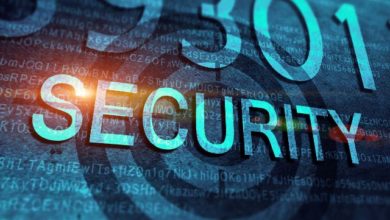How to Keep Your Business Servers Secure: A Guide

Businesses are heavily dependent on technology for their daily operations. From large corporations to small startups, servers have become an essential part of every business. They store important data, host websites, and applications, and provide access to various services. With the rise in cyber attacks targeting businesses of all sizes, server security has become a top concern for every organization.
In this guide, we will discuss everything you need to know about keeping your business servers secure and protecting your valuable data from potential threats. Whether you are a tech-savvy entrepreneur or a business owner with minimal knowledge about IT security, this article is packed with useful tips and strategies that can help ensure the safety of your servers. So buckle up and get ready to boost your server’s security like never before!
The importance of server security
Servers have become the backbone of businesses and organizations across the globe. They store and handle important data and information, making them a prime target for cyber attacks. This is why server security is crucial. A breach or compromise can lead to severe consequences such as loss of confidential data, reputational damage, and financial loss.
Server security ensures that the network and data remain safe from malicious activities, such as hacking and malware attacks. It is vital to implement proper security measures, such as firewalls, authentication processes, and access controls, to safeguard your servers and their information. Protecting your servers is not only responsible, but it is also crucial in maintaining the integrity of your business.
Assess your current security measures
Security should always be a top priority. Whether you have just set up your business servers or have been using them for years, it is essential to regularly assess your security measures. This will help identify any vulnerabilities and gaps in your system that could potentially be exploited by hackers. Consider conducting regular security audits to evaluate the effectiveness of your current measures and make necessary updates and improvements.
Additionally, keep a close eye on emerging threats and stay informed about the latest security trends and best practices. Whether it’s Kubernetes security or securing cloud-based servers, staying updated is key to ensuring your business remains protected. It is also recommended to have a dedicated team or a professional IT service provider to monitor and manage your security consistently.
Check if your current security is up to date
It’s more important than ever to stay up to date with the latest security measures. Cyber threats and attacks are constantly evolving, making it crucial to regularly update your security systems. This includes installing the latest software updates, and firmware updates, and implementing new security protocols.
Outdated security measures are easier to breach and can leave your servers vulnerable to attacks. Keep in mind that hackers often exploit vulnerabilities in outdated software or hardware to gain access to a system. By staying up to date, you are not only protecting your servers but also ensuring the overall safety of your business.
Train your employees on cybersecurity
Protecting your company’s data is crucial in this day and age, which is why training your employees on cybersecurity is an essential step. Cyber attacks are becoming more common, and hackers are getting more sophisticated, making it increasingly difficult to prevent breaches.
Through cybersecurity training, your employees can learn to identify potential threats, such as phishing emails or malware attacks, and take necessary precautions to prevent them. It’s also essential to establish clear security protocols for your employees to follow, such as using strong passwords, regularly changing them, and reporting any suspicious activities immediately.
Implement strong password policies
It is shocking how many cyber attacks occur due to weak passwords. Passwords are the first line of defense for your servers and play a crucial role in keeping them secure. It is essential to implement strong password policies that require employees to use complex and unique passwords for their accounts. Additionally, enforce regular password changes and educate employees on best practices for creating strong passwords.
Consider implementing multi-factor authentication to add an extra layer of security to your server login process. Most importantly, ensure that all default passwords are changed immediately after setting up new servers.
The importance of backups for business servers
The foundation of any successful business is reliable and secure data management. With more and more businesses relying on technology, the importance of backups for business servers cannot be overstated. It’s not uncommon for businesses to experience power outages, hardware and software failures, cyberattacks, or other unexpected events that can drastically affect the functionality of their servers.
Without adequate backups in place, a business can suffer data loss, system failure, or worse, resulting in significant operational and financial losses. Regular backups ensure that critical business data is always available when needed, minimizing downtime, and increasing business efficiency and productivity. With so much at stake, businesses need to include data backup and recovery as part of their IT strategy.
The benefits of using cloud services for server security
Server security is critical. With the rise of cyber threats, companies must take proactive steps to safeguard their sensitive data and information. Enter cloud services, which offer a host of benefits when it comes to security. With cloud services, businesses can leverage the expertise of highly skilled security professionals, access advanced security technologies, and take advantage of around-the-clock monitoring and support.
Additionally, the cloud provides a scalable and cost-effective solution for businesses of all sizes, allowing them to customize their security measures based on their unique needs and resources. By utilizing cloud services, businesses can rest assured that their servers are protected and their data is secure.

In conclusion, the safety and security of your business servers should be a top priority. As we have discussed in this blog post, there are numerous steps you can take to ensure that your servers are protected from potential cyber threats. From regularly assessing your current security measures to implementing strong password policies and using encryption for sensitive data, each strategy plays a crucial role in enhancing the overall security of your servers.
Additionally, training your employees on cybersecurity and keeping a close eye on server activity through regular monitoring also contribute greatly to minimizing vulnerabilities. And let’s not forget the importance of having backup plans in place and considering cloud services as an added layer of protection.
Ultimately, it is essential to regularly review and update your server security measures to stay ahead of potential risks. So what are you waiting for? Take action now and protect your business with these powerful tips and strategies! Your business’s success and reputation depend on it. Stay safe out there!



